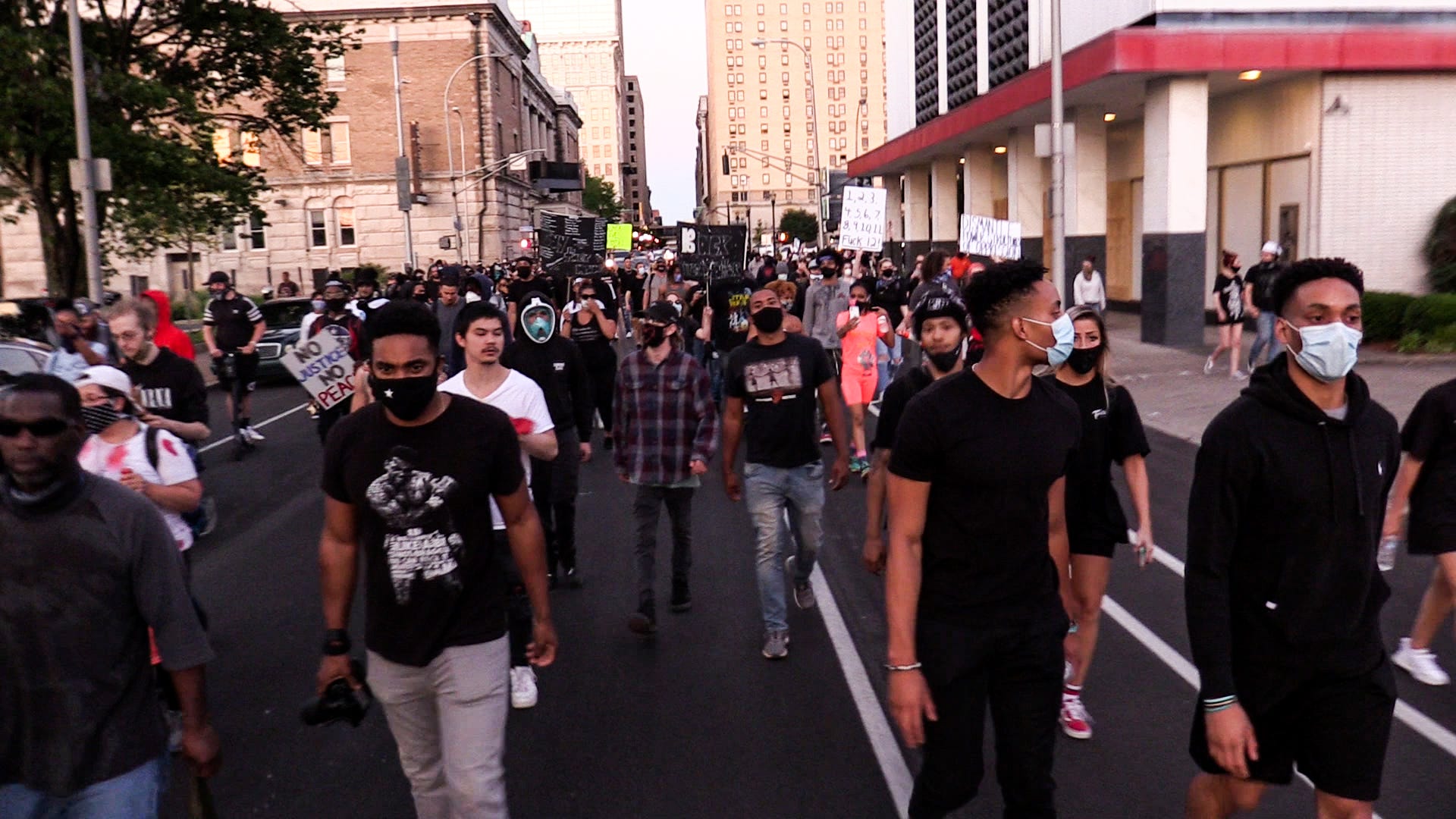The first Breonna Taylor protesters are going to trial in Louisville: What to know

LOUISVILLE, Ky. — The trial is set.
A protester arrested during demonstrations over the police killing of Breonna Taylor is expected to head to court Monday.
Her case will be the first to be decided by a jury of her peers, and the outcome could have a rippling effect on dozens of cases that remain open in district court.
Through Louisville's year-long uprising, law enforcement made more than 1,000 protest-related arrests, according to data from Louisville Metro Police and the Jefferson County Attorney's Office.
At least 600 cases have since been dismissed, but county prosecutors are continuing to pursue about 200 with misdemeanor charges, including obstructing a highway, unlawful assembly and inciting to riot.
Background: Why most protesters arrested by Louisville police will never be convicted of a crime
Local activists have questioned the validity of the charges, saying officers violated protesters' constitutional rights by making broad arrests.
Police representatives, however, have said officers were following Kentucky's laws for keeping people safe.
Attorney Ted Shouse, who is representing the defendant facing trial, said the upcoming proceedings will offer the general public a chance to weigh in.
"I think the majority of these arrests were completely unwarranted," he said. "Now a jury is going to get to see what they think about these arrests."
A spokesperson with the county attorney's office declined to comment on specific cases in advance of the trials.
'It's by design': Black people most often charged with felonies amid Louisville protests
In a July interview, first assistant attorney Ingrid Geiser said the office reviewed each case individually and proceeded with those where "there was violence or a threat of violence, property damage or where protesters were blocking roadways and making it unsafe for other community members to use the roadways.
"Where people were just gathering to make their feelings known and they're doing it in a lawful manner, then we're supportive of that. We didn't want anyone to be prosecuted for that type of situation."
First trial begins Monday
The case scheduled for trial Monday stems from a July 2020 demonstration in the NuLu business district of Louisville. A second case from that day is expected to be scheduled soon.
That day, more than 100 protesters gathered for an impromptu block party, where they set up games and picnic tables in the middle of East Market Street.
The demonstration was part of a campaign calling on business owners in the area to hire more Black employees and carry more products from Black-owned companies.
Police made 76 arrests during the protest, charging most people with the same three misdemeanor charges: obstructing a highway, unlawful assembly and disorderly conduct.
Thirty-three cases have since been dismissed, with several defendants pleading guilty and completing volunteer work.
Five cases have been scheduled for trial, including for Shajuandi Barrow, whose trial is set to begin Monday. A trial for Tracy Baker should follow soon after.
Shouse, who is representing both defendants pro bono, said many protesters who are continuing to fight their charges feel they were "completely unnecessary and illegal."
"They want a jury to pass judgment on the activities of the Louisville Metro Police Department," he said. "These cases are about determining what really happened here."
On Oct. 22, assistant county attorney Matthew Kinney made a motion to continue Baker's and Barrow's cases until they could be combined with more than two dozen open cases stemming from the same incident.
"The witness and evidence presented at trial will be the same or substantially similar for all 32 defendants," Kinney wrote in a motion filed in district court.
District Judge Julie Kaelin denied the motion, saying she didn't think a combined trial would be plausible because of courtroom constraints.
‘You need to be reminded of Breonna’: How a tiny city park became the heart of a movement
Trials could affect other open cases
If juries rule in favor of the defendants in the initial protest-related trials, it could change how other open cases are handled, Shouse said.
Many outstanding misdemeanor cases carry the same charges as those from the NuLu protest, including 27 cases stemming from a demonstration that shut down the Clark Memorial Bridge and 18 connected to a march near Churchill Downs in August 2020.
Almost 30 more cases remain open from arrests made on Sept. 23, 2020, the day Attorney General Daniel Cameron announced no officers would face charges for shooting Taylor, a 26-year-old Black woman killed when police attempted to serve a search warrant at her South End apartment.
Lonita Baker, an attorney who represented Taylor's family in a lawsuit against the city, is involved in several open cases and said the pending trials could affect how they play out.
If the prosecution is not successful, hopefully they see that juries just don't tolerate it" and drop the cases, she said. "I implore the elected prosecutors to really sit down and think and look at these individuals they're prosecuting and say are these dangerous people we need to potentially have become convicted felons? What good does that do."
Shameka Parrish-Wright, a community organizer who is running for mayor, added that protesters should not be penalized for speaking against police violence.
"We are already a high-conviction state," she said. "... They're trying to send a message because they don't want to see that level of protest again."
Reach reporter Bailey Loosemore on Twitter @bloosemore.